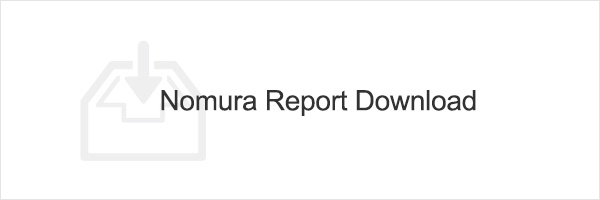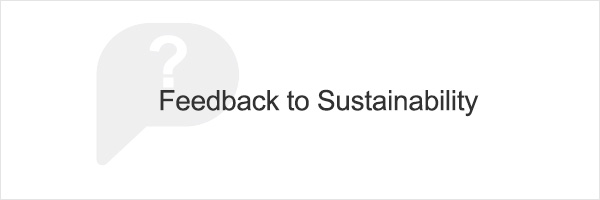Nomura Group recognizes the importance of our employees' physical, emotional, mental and financial wellbeing in realizing their full potential, staying motivated and excelling in their work.
We are committed to enhancing our employee welfare programs, including our childcare and nursing care support. We prioritize our employees’ health and wellbeing and provide a comfortable environment and appropriate working conditions to ensure that our people can continue to work with enthusiasm.
Nomura Group adopts a management approach to the health and wellbeing of our employees, and promotes "health and productivity management" to encourage employees to take the initiative in addressing their individual health issues. Under the leadership of our Chief Health Officer, we proactively implement initiatives aimed at helping our people improve their health, towards realizing our Group management vision to "Achieve sustainable growth by helping solve social issues."
We are implementing occupational health and safety management with reference to the Ministry of Health, Labour and Welfare's "Guidelines on Occupational Safety and Health Management Systems," which in turn refer to ISO 45001.
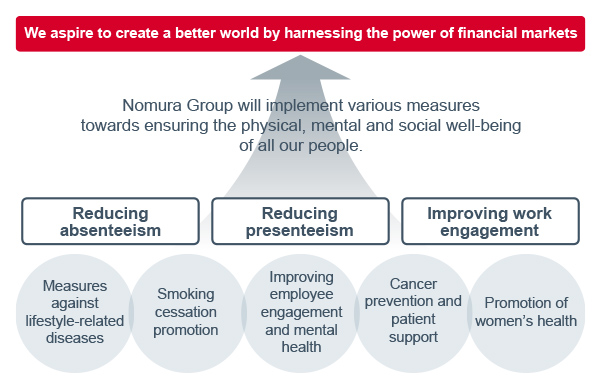
In 2016, we formulated the "Nomura Health & Productivity Declaration Statement" with approval from the Executive Management Board.
Nomura Health & Productivity Declaration Statement
Our employees are Nomura's greatest asset. In order for each of them to fully utilize their capabilities and personalities, it is important to be healthy both mentally and physically. Based on this corporate vision, Nomura group proactively pursues employees' health and wellbeing from a management perspective.
Under the Chief Health Officer (CHO), the Deputy CHO, health insurance associations, occupational health physicians, public health nurses, and Group companies come together to promote health and productivity management. The Health and Productivity Management Promotion Committee, which meets regularly, comprises the CHO, the executive officer in charge of Human Resources, the heads of the human resources departments, and other members. The details of discussions are reported to the Board of Directors and the Executive Management Board as appropriate.
We actively promote the health of our employees and strengthen our occupational health and safety system by grasping health issues based on the status of employees' health risks, high-risk analysis of lifestyle-related diseases, and analysis of workplace health risks, formulating and implementing measures, and verifying the results throughout the organization.
In promoting health and productivity management, we emphasize the participation of employees and hold discussions between the labor union and management.
We recognize the need to reduce Absenteeism (1) and Presenteeism (2), and improve Work Engagement (3) and have set the following measurements in order to monitor employee well-being:
|
FY2022 |
FY2023 |
FY2024 |
Goal (FY2025) |
||
|
Absenteeism (millions of yen) |
Actual results |
794.7 |
794.7 |
759.7 |
- |
|
Number of people measured |
14,067 |
13,561 |
13,470 |
||
|
Response rate |
- |
- |
- |
||
|
Presenteeism |
Actual results |
16.1 |
16.4 |
17.9 |
10 |
|
Number of people measured |
10,764 |
10,161 |
11,726 |
||
|
Response rate |
81.8% |
79.2% |
93.5% |
||
|
Work Engagement |
Actual results |
53.7 |
53.3 |
53.7 |
60 |
|
Number of people measured |
12,813 |
12,445 |
12,407 |
||
|
Response rate |
95.7% |
95.6% |
95.4% |
- Absenteeism: The impact of absenteeism is measured by financial losses due to absence from work coursed by injury or illness, calculated by multiplying the average compensation of employees for such financial year by the number of employees and the utilization rate of sick leave.
- Presenteeism: A condition in which individuals go to work despite being ill or experiencing symptoms of illness, with negative impacts on business execution and productivity. The figure is calculated based on responses to the SPQ (Single-Item Presenteeism Question, Tokyo University 1-Item Version).
- Work Engagement: A positive, fulfilling, work-related state of mind. This is measured based on deviation from the results of the national average of annual stress assessment, which is an annual mandatory workplace program in Japan to screen for mental health issues in workers.
- The above target values are for the Nomura Group, while the actual figures pertain to Nomura Securities Co., Ltd., one of the major consolidated subsidiaries.
For Absenteeism, we have not set a specific target because it is important to create an environment where our employees can be absent from work when they feel unwell. We will continuously evaluate and introduce new well-being initiatives to improve this metrics. We set our targets for Presenteeism and Work Engagement, 10 (i.e., no more than a 10% productivity loss rate) and 60 (with the national average being 50), respectively by the fiscal year ended March 31, 2026. At the moment these measurements are only applicable to employees of Nomura Securities but we will continue to evaluate our implementation plan and extend the initiatives to other subsidiaries, ultimately expanding the coverage to the Nomura Group as a whole.
Connection between Health and Productivity Management goals and initiatives
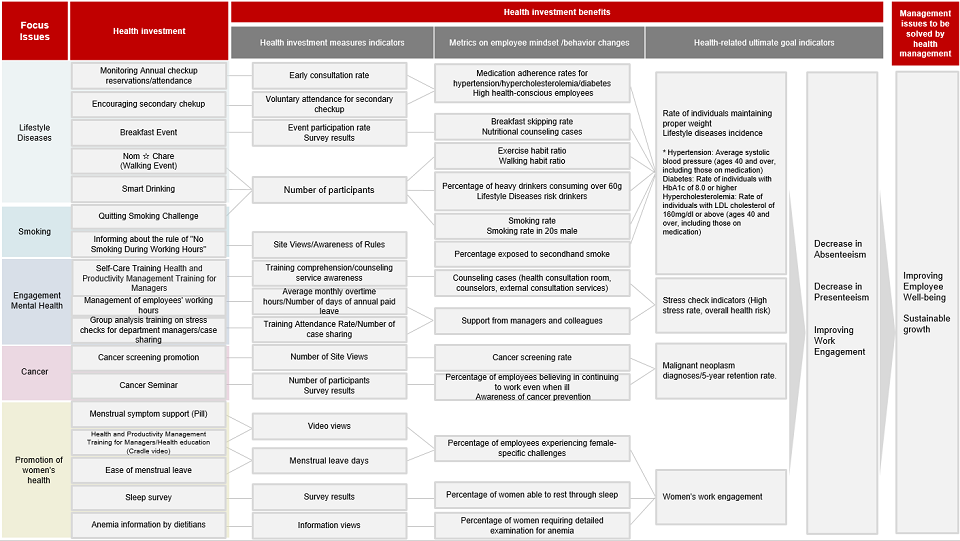
The Health and Productivity Management Promotion Committee recognizes health risks such as obesity, blood glucose levels, and liver function among employees, as well as lifestyle habits such as lack of exercise, dietary issues such as eating too fast or excessive drinking, and smoking as health issues, and is advancing a variety of initiatives to help employees improve their health.
Risks related to health and productivity management are closely related to productivity and corporate performance. We aim to realize health and productivity management and improve corporate value by identifying Group priorities, formulating action plans and advancing countermeasures based on metrics and targets.
The main issues and metrics are as follows.The actual figures are those of Nomura Securities Co., Ltd., a major consolidated subsidiary.
|
Issues |
Metrics |
Targets |
|
Lifestyle Diseases |
Rate of employees going to follow-up medical exams |
100% |
|
Smoking |
Decrease in Smoking Rate |
12% |
|
Improvement in Engagement / Mental Health |
Work engagement |
60 |
|
Early Discovery and Treatment of Cancer |
Rate of employees who get detailed exams |
80% |
We also conduct health and safety training at the workplace and educational activities through periodic e-mails to raise employee awareness of occupational health and safety.
Nomura Group's key initiatives in Japan to promote the health of employees are as follows.
Nom☆Chare (NOMURA Health Challenge)
|
Health Issue |
Due to the large number of desk workers, 35.2% (FY 2016) of employees have a habit of walking, and many employees do not have a habit of walking on a regular basis. |
|
Goal |
Increase in the event participation rate --> Increase in the number of employees with walking habits --> Decrease in the number of employees at risk of lifestyle-related diseases/Improvement in communication --> Reduction in Absenteeism/Presenteeism Target value: Percentage of people who have a walking habit: 50% (FY 2025) |
|
Contents of Initiatives |
Every year we hold the Nom☆Chare (NOMURA Health Challenge), an online walking event where people compete for the average number of steps per department. By sharing steps and photos with all employees, and supporting each other by pressing "Like!" and posting comments, we are helping to improve employee communication and establish an exercise routine. Each member of the department participated in the event while making efforts to contribute to health and society, such as climbing mountains and picking up trash while walking.At the same time, donations were made in an amount corresponding to the walking distance taken by participants. In fiscal 2023, donations were made to Kidsdoor (NPO Kidsdoor). We not only promote the health of our employees, but also contribute to society through donations. The investment amount for this policy is 300,000 yen, which is the same amount as the donation amount. |
|
Results |
In fiscal 2023, the percentage of departments participating in the event was 82.5%, and the total walking distance of participants exceeded 1.2 million kilometers, marking a record high. The ratio of individuals with walking habits in 2023 improved by over 10% compared to the fiscal year 2016, reaching 47.8%. In addition, more than 4,000 posts were posted on SNS, a function that allows users to share the steps taken by a department and the state of its activities with all other departments, 2.2 times more than the previous year. |
|
Future Improvements |
Although the participation rate and number of posts at events are high, there is room for further expansion. Therefore, we will share good practices that lead to the revitalization of workplace communication and the improvement of our own health values. |
Status of walking habits
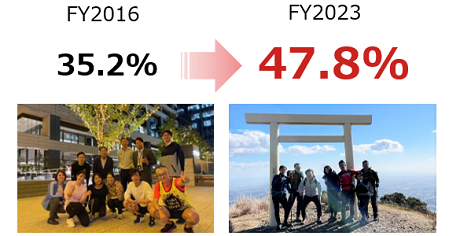
Change in number of participants and total walking distance
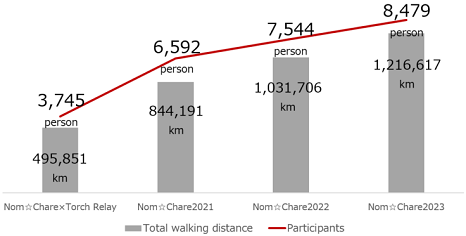
Anti-Smoking Measures
|
Health Issue |
In fiscal 2018, we expanded our support to subsidize the cost of smoking cessation, and strengthened our efforts to separate smoking, such as smoking cessation in the rooms of our training centers. In fiscal 2020, we began implementing measures such as a ban on smoking on the 22nd day of every month. As a result, the smoking rate at Nomura Securities has been decreasing year by year, but there is still room for improvement compared to the national average*1. In addition, 43.7% of employees answered "feeling uncomfortable or sick at work about smoking" in a health awareness survey*2 conducted among employees, indicating an urgent need to develop a comfortable work environment.
*1 Results of the 2020 Nomura Securities Medical Examination: National Average: 2019 National Health and Nutrition Examination Survey *2 Results of the 2018 Nomura Securities Health Awareness Survey |
|
Goal |
|
|
Contents of Initiatives |
In order to prevent unwanted passive smoking and to create a comfortable working environment, CHO sent out the message of "Nomura Group Smoking Measures" to all employees. In addition to the "No Smoking During Working Hours" and "Abolition of Smoking Rooms," we have been recommending that smokers who smoke during lunch breaks not return to the office within 45 minutes of smoking since 2021. We also subsidize the cost of smoking cessation treatment and support. By publicizing our company's emphasis on anti-smoking measures, we are creating an environment that makes it easier for smokers who have not yet decided to quit to quit. |
|
Results |
According to the results of the physical examination in fiscal 2023, the smoking rate was 14.9%, a 7.1% decrease compared to 22.0% in fiscal 2016 before the promotion of health management. In addition, in the FY 2023 Health Awareness Survey, the number of employees who answered "feeling uncomfortable or sick at work about smoking" halved from 43.7% to 23%. |
|
Future Improvements |
We will continue to provide support to employees who want to quit smoking, and introduce the experiences of managers who have succeeded in quitting smoking. By sharing the benefits gained by quitting smoking, we will further develop an environment in which smokers can feel positive about quitting smoking. |
Trends in smoking rates
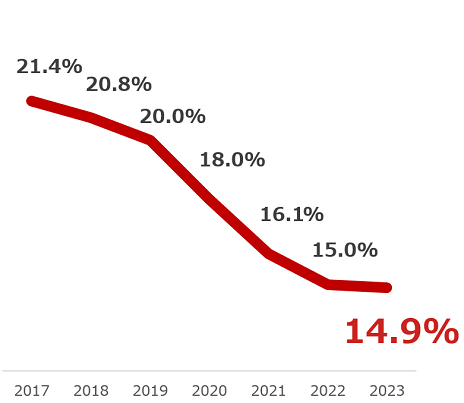
Percentage of employees who answered "I sometimes feel uncomfortable or unwell at work due to others smoking"
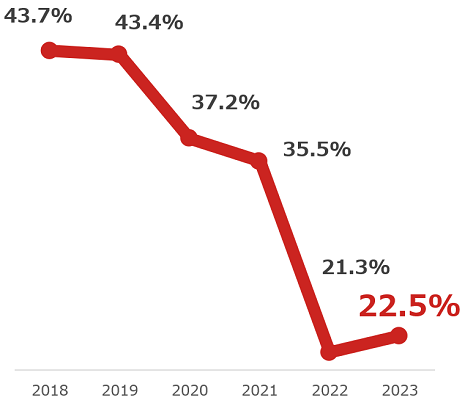
Measures for People at High Risk of Lifestyle-Related Diseases
|
Health Issue |
After receiving a medical examination, an occupational physician recommends that employees receive a secondary examination (Re-examination, treatment required, etc.) if deemed necessary. However, approximately 20% of employees did not respond due to lack of subjective symptoms or busy work. This is a significant improvement (82.2%*1) from 2015 (58.0%), before the start of health management. However, the number of employees who do not receive a secondary examination deteriorates year by year, and some of them develop diseases, resulting in absenteeism or leave of absence.
*1 Results of the 2019 Nomura Securities Medical Examination |
|
Goal |
|
|
Contents of Initiatives |
Prior to fiscal 2019, occupational physicians, public health nurses, and others recommended that employees undergo secondary examinations. However, since fiscal 2020, the flow has changed to recommending that employees who do not undergo secondary examinations be examined by personnel and superiors until the results are reported. |
|
Results |
In fiscal 2023, the secondary examination rate improved to 98.2% (as of October 1, 2024). Employees who are at high risk for serious lifestyle-related diseases, such as blood pressure and blood sugar, were encouraged to continue treatment by an industrial physician and started follow-up. The continuation rate of treatment was 99.3% for blood pressure and 97.1% for blood sugar. Absenteeism in fiscal 2023 was JPY794.7 million, down from JPY1109.7 million in fiscal 2021. |
|
Future Improvements |
We will continue to follow up with employees who are at high risk and need to continue to receive medical care, so that employees who receive secondary testing will not discontinue treatment after that, and this will lead to a reduction in the number of high-risk individuals. |
Follow-up examinations rate

Promoting Women's Health
|
Health Issue |
According to the results of the annual stress check, the number of employees who are highly engaged in their work continues to be about 10% lower for women than for men. In addition, approximately 70% of the women surveyed in the Health Awareness Survey answered that they had experienced difficulties in the workplace due to women-specific health issues and symptoms. Women, who account for 44% of employees, need to improve their literacy and ability to cope with women-specific health issues, and create an environment where women can work actively by changing their attitudes in the workplace and in management. |
|
Goal |
|
|
Contents of Initiatives |
To improve literacy in women and the workplace, all employees, including men and women, will receive "Well-beingTraining". We distributed a discussion featuring CHO and Spicuni, the CEO of Cradle Inc., on the theme of 'The Importance of Companies Addressing Women's and Men's Health.' The topics included 'Menstruation,' 'Men's Menopause,' 'Women's Menopause,' and 'Cervical Cancer' in a video format. At the same time, we are working to improve the working environment for women by further informing the company of the system of leave of absence for infertility treatment introduced in fiscal 2021 and the use of sick leave. Starting in the 2024 fiscal year, we will introduce 'mederi for biz,'a low-dose pill support service utilizing femtech provided by mederi Inc., aimed at female employees. This service will fully cover the costs associated with the use of low-dose pills. We are providing support to alleviate concerns related to menstruation and to improve symptoms by utilizing low-dose pills when necessary. In April 2025, the name of 'Women's Monthly Leave' will be changed to 'F Kyuka,' and the reason for taking this leave will be expanded to include PMS (premenstrual syndrome). This change will allow female employees to take leave not only on menstrual days but also in the days leading up to them. Additionally, starting in April 2025, we will begin providing financial assistance for egg freezing costs, thereby offering support to expand the options available to female employees as they consider their life plans. With these initiatives, we aim to create a more inclusive workplace where female employees can fully demonstrate their abilities and thrive. With these initiatives, we aim to create a workplace where female employees can fully demonstrate their abilities and thrive. |
|
Results |
The rate of participation in "Well-beingTraining" was 100%, the percentage of employees who responded that their understanding of the importance of having accurate knowledge about both men's and women's health has deepened is 95.9%. |
|
Future Improvements |
Based on the results of the training questionnaire, we will promote the creation of a psychologically safe workplace where women can report their problems smoothly. |
Understanding the importance of having accurate knowledge about men's and women's health through training
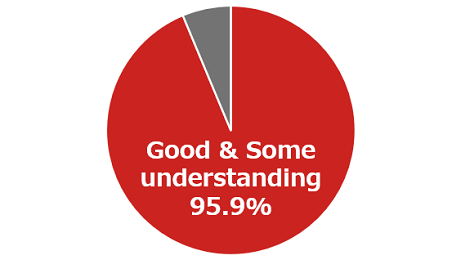
We are using the cloud-based health management platform "WellGo" provided by WellGo Co., Ltd. "WellGo" was created through a business contest held by Nomura Holdings and Nomura Research Institute. This health platform uses AI and big data to support employees' health, allows employees to view personal health information such as their individual healthy life expectancy and step count, and offers an incentive program in which employees earn points by engaging in health-related activities.
In order for employees to detect and treat illnesses at an early stage, we have set a target to have 100% of our employees undergo health checkups and comprehensive medical exams. The firm and the Health Insurance Association fully subsidize the costs of health checkups for employees in their 20s and comprehensive medical exams for employees age 30 and above, and subsize the costs of cervical cancer screenings for women age 20 and above and breast cancer screenings for women age 30 and above. The firm also allows employees to take paid leave ("comprehensive medical exam leave") for the time they spend going to receive a comprehensive medical exam.
"My Health Points" is a system that supports employees who make an effort to stay healthy. Points are awarded to employees when they take actions that are good for their health, such as recording the hours they sleep in their lifestyle log, or undergoing a comprehensive medical exam without delay. Accumulated points can be exchanged for prizes such as Amazon gift certificates or donations.
Nomura Group supports employees balancing work and treatment for illnesses such as cancer.
We are working to foster an environment supportive of employees who are balancing work and medical treatments. We published a "Treatment & Work Coexistence Assistance Guidebook (Employee Version and Manager Version)" for employees battling illnesses, as well as for their managers. In addition, we provide "Follow-Up Examination Leave," which is paid leave employees can use to do follow-up tests after their health checkup. Employees needing time off to undergo chemotherapy or other types of treatment at a hospital can take annual paid leave in hourly increments. Employees battling illness also have access to consultation services provided through collaboration among the firm's occupational health physicians, nurses, and nutritionists. By consulting with our internal specialists, employees get advice on how to best approach work while receiving treatment for their illness.
Since FY2016/17 we have been conducting annual stress checks for all employees and providing mental health training as a part of our safety and health training program with the objective of preventing mental illness and creating positive work environments. We also strive to help employees on leave due to mental illness make a smooth return to the workplace. Such efforts include a support framework that provides access to various specialists and an employee counseling room staffed by dedicated professionals, as well as a return-to-work support plan and a system that allows employees to work shortened hours.
Nomura Group manages the health of its employees with an emphasis on prevention as well as early detection and treatment of illnesses. Our occupational health physicians periodically visit our workplaces to monitor the health of employees and meet with supervising managers. We also provide improvement guidance to departments where people work long hours, including recommending that employees working extended hours consult with a physician. In accordance with the Industrial Safety and Health Act, Nomura Group has an Occupational Health and Safety Committee which meets once a month. The committee discusses issues related to workplace environment and health concerns to ensure that everyone working in Nomura Group, including temporary staff and contractors, stay healthy as they work.
In the event of diseases or work-related injuries, we have a system in place to promptly conduct investigations. In addition, measures to address the situation will be considered and employees will be informed about the issue as necessary.
Nomura Holdings has been included in the "KENKO Investment for Health Outstanding Organization" jointly sponsored by the Ministry of Economy, METI and the Nippon Kenko Kaigi.
KENKO Investment for Health Outstanding Organizations Recognition Program recognizes large companies as well as SMEs implementing exceptional health and productivity management initiatives to address health issues in their respective regions based on initiatives implemented by the Nippon Kenko Kaigi to promote better health.
2025 Certified KENKO Investment for Health Outstanding Organization (White 500)
- Nomura Securities (eighth time)
- Nomura Asset Management (sixth time)
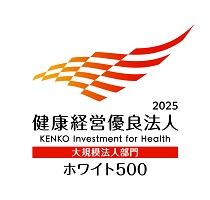
2025 Certified KENKO Investment for Health Outstanding Organization
- The Nomura Trust and Banking (third time)
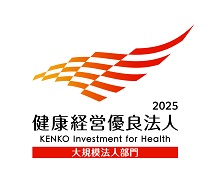
2025 Certified KENKO Investment for Health Outstanding Organization (Next Bright 1000)
- Nomura Business Service (first certification)
- Nomura Babcock & Brown (first certification)
- Nomura Properties (first certification)
- Nomura Healthcare and Nomura Fiduciary Research & Consulting (first certification)
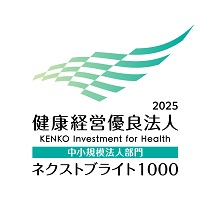

Nomura Securities was awarded the Minister of Health, Labour and Welfare Prize in the FY2019/20 Awards for Companies Promoting Cancer Control as a part of the Action Plan for the Promotion of Cancer Control, a project commissioned by the Ministry of Health, Labour and Welfare. The Action Plan for Promotion of Cancer Control is a national project aimed at increasing the ratio of people in workplaces who undergo cancer screenings with the aim of promoting the early discovery and treatment of cancer. The Minister of Health, Labour and Welfare Award is given to organizations that are making the best overall efforts to control cancer.
Nomura Group won the Diamond, Gold and Silver awards in the Gan-Ally-Bu Award, a non-governmental project organized by Gan Ally Bu. Gan Ally Bu's aim is to create workspaces, and wider society, where cancer patients can thrive while receiving treatment. Gan means cancer in Japanese.
Award-winning Group Companies
[Diamond Award]
- Nomura Securities (First time)
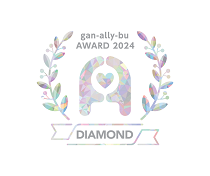
[Gold Award]
- Nomura Asset Management (Third consecutive year)
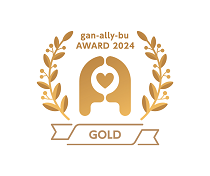
[Silver Award]
- Nomura Trust and Banking (First time)
- Nomura Business Services (Fourth consecutive year)
- Nomura Properties (Fourth consecutive year)
- Nomura Babcock & Brown (Third consecutive year)
- Nomura Fiduciary Research & Consulting (Second consecutive year)
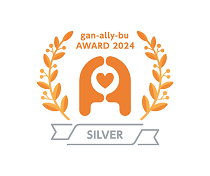
In addition to complying with the Japanese Labor Standards Act, Nomura Securities has established guidelines for workstyle innovation and health promotion and has set targets for time management and health promotion. Recognizing the importance of ensuring the physical and mental health of employees and promoting efficient work practices, we offer flexible working styles so that employees can continue to work comfortably over the long term.
In FY2022/23, we launched a new group-wide initiative, "Nomura Ways of Working," which flexibly responds to changes in the environment, such as discussions around well-being in the workplace.
Through this initiative, we will create environments where employees can maximize their work performance without being constrained by time or location. At the same time, we will increase opportunities for communication and collaboration, while ensuring a healthy balance between work and personal time.
The main measures are as follows.
- Flextime system
- Work from home
- Flexible arrival/departure time system (allowing earlier or later start or finish times)
- Relocation programs for general career (area type) employees
- Spouse relocation leave programs for when a spouse relocates overseas
- Promotion of taking at least five consecutive business days of annual paid leave (at least once a year) and complete utilization of 10 or more days annually
- Half-day and hourly paid time off
- Leave, leave of absence, and leave policy in excess of legal requirements for childbirth, childcare, and nursing care (maternity and childcare leave for spouse or partner, paid child sickness leave, leave for nursing care, leave of absence for fertility treatment)
- Support systems for childbirth and childcare (subsidies for daycare expenses, creation of nursing rooms, etc.)
- Promotion of male childcare leave, such as financial incentives for childcare leave
- Paid personal sick leave
- Health and safety training in the workplace and educational activities through periodic e-mails to raise employee awareness
Nomura Group aims to support career development for every employee. For employees with disabilities, assignments are decided through open discussions and by identifying opportunities suited to individuals’ capabilities.
Nomura Securities Childcare and Family Nursing Care Supports
(As of April 1, 2025)
Support System for Balancing Childcare and Work
- Maternity Leave before and after childbirth
Female employees are entitled to take six weeks paid leave before delivery (14 weeks for multiple births), and eight weeks after delivery. - Special Leave during and after Spouses' or Partners' Childbirth
Employees who are taking care of a child born to or adopted by their spouse or partner can take paid leave of up to 5 days, in 1-day increments, for each child, for a maximum of 2 years from the birth of the child. - Childcare Leave at Birth
Employees who have not taken maternity leave and are caring for a child within 8 weeks after birth can take paid leave of up to 4 weeks for each child (which can be taken in two separate periods). - Childcare Leave
Employees who are raising children under the age of 2 (including adopted children) are eligible for Childcare Leave. Leave can be taken in multiple installments (twice before the child turns 1, and once when the child is between 1 and 2 years old). - Childcare Time Arrangement
Employees who are raising children up to the age of middle school entry may apply for Childcare Time, and if approved by the company, they can take up to 2 hours in total, twice a day. - Short-Time Work and Exemptions from Overtime Work
Employees are entitled to an exemption from overtime and holiday work and may choose to work six hours per day, reducing their working hours upon application until their child reaches preschool age. - Child Sickness Leave
Employees can take up to 5 days of paid leave per child to care for a child who has not yet entered middle school, to address school closures due to infectious diseases, or to participate in school events. Leave can also be taken in half-day or hourly increments. - Financial Incentives for Childcare Leave
Nomura provides a payment of 10% of basic annual salary as a "Financial incentive for Childcare Leave" to employees who take childcare leave for one continuous month or longer. - Subsidy for Daycare Expenses
Employees raising children under the age of 3 who have taken maternity leave or Childcare Leave of 8 weeks or more, and meet the eligibility criteria, will receive a monthly allowance of 20,000 yen per child. - Other Financial Support
・Benefits: Lump-sum childbirth and childcare allowance, maternity allowance, etc.
・Childcare and Nursery: Corporate contracted nurseries, babysitter discount vouchers
Support System for Balancing Caregiving and Work
- Family Care Leave
For the purpose of caregiving for a spouse (including common-law partners), children (including adopted children), the individual and their spouse's parents, grandparents, etc., it is possible to take caregiving leave for a maximum of 3 times per family member, with a total of up to 365 days. - Caregiving Leave
Employees can take up to 5 days of paid leave per year for each eligible family member. Leave can be taken in full-day, half-day, or hourly increments. - Family Care Hours・Reduced-hours flextime(due to caregiving).
Working hours can be reduced up to 2 times a day, not exceeding a total of 2 hours. This can be taken for a maximum of 3 years starting from the beginning of the use of caregiving time or caregiving short-time flexibility. - Exemption and Limitation of Overtime Work, etc.
Exemption from working outside of regular hours and on holidays. Limitations on overtime work. Restrictions on night shifts.
Nomura organizes various forums for direct dialogue between management and employees around the world. Town hall meetings and social gatherings are regularly held in each region to provide opportunities for senior management to share the company's vision, strategy, and philosophy, and for employees to engage in active exchange with senior management with the aim to deepen mutual understanding.
As part of our continued efforts to make our employees happy, we annually conduct surveys of all Group employees to monitor the status of communication within the organization and their level of engagement.
We are committed to making improvements and cultivating a healthy, values-driven culture for everyone.
Survey Results
|
FY 2020 |
FY 2021 |
FY 2022 |
FY 2023 |
|
|
Ratio of Employees Who Feel Proud to Work for Nomura |
88% (Male: 89%; Female: 87%) |
86% (Male: 87%; Female: 85%) |
85% (Male: 87%; Female: 85%) |
84% (Male: 86%; Female: 85%) |
|
Response Rate |
90% |
90% |
88% |
88% |
Based on the results of our annual employee survey, we are also examining and making improvements to our various human resource management strategies.
Our people are critical to our success and we believe that a positive work environment that encourages active involvement is essential to make them happy. We assess employee engagement through regular surveys, and use the results to enhance ongoing initiatives to help our employees achieve a good balance between work and home and family responsibilities.
More than half of the employees of Nomura Securities are members of the Nomura Securities Employees Union, and Nomura Securities has standing labor agreements with the union. To maintain sound and healthy relationships between labor and management, discussions are conducted with the union on a wide range of topics, not only when changes are to be made in various systems, such as employee welfare benefits and personnel management, but also on day-to-day issues, including respect for employee rights and management issues. Through these discussions, management and labor share views, and employees in the workplace have the opportunity to make their views known.
